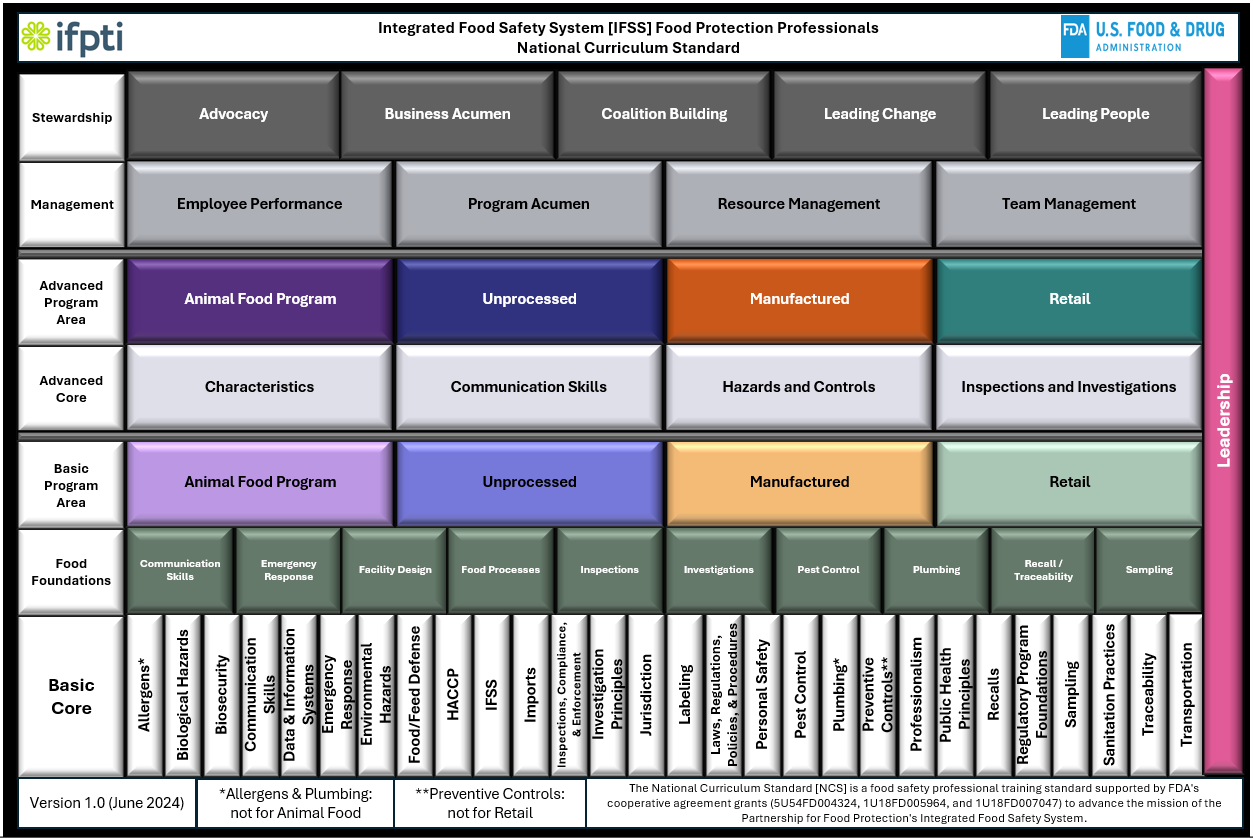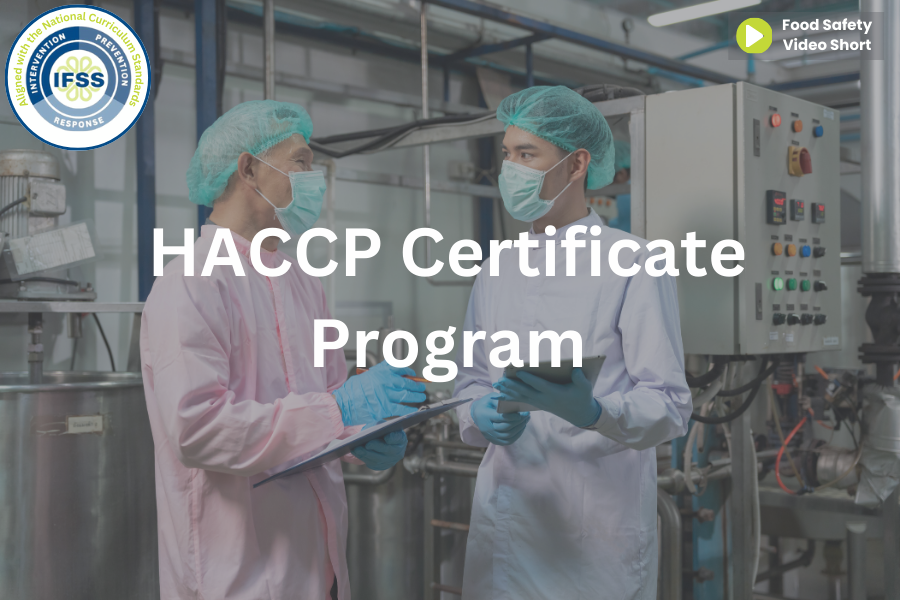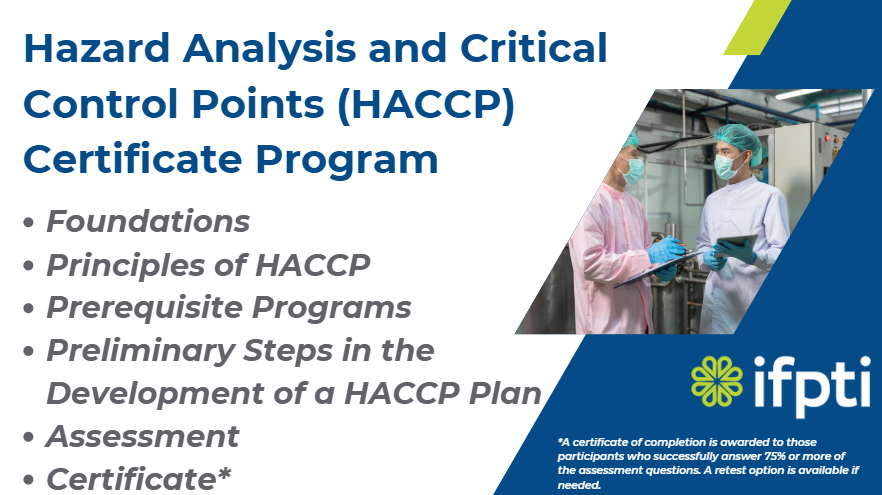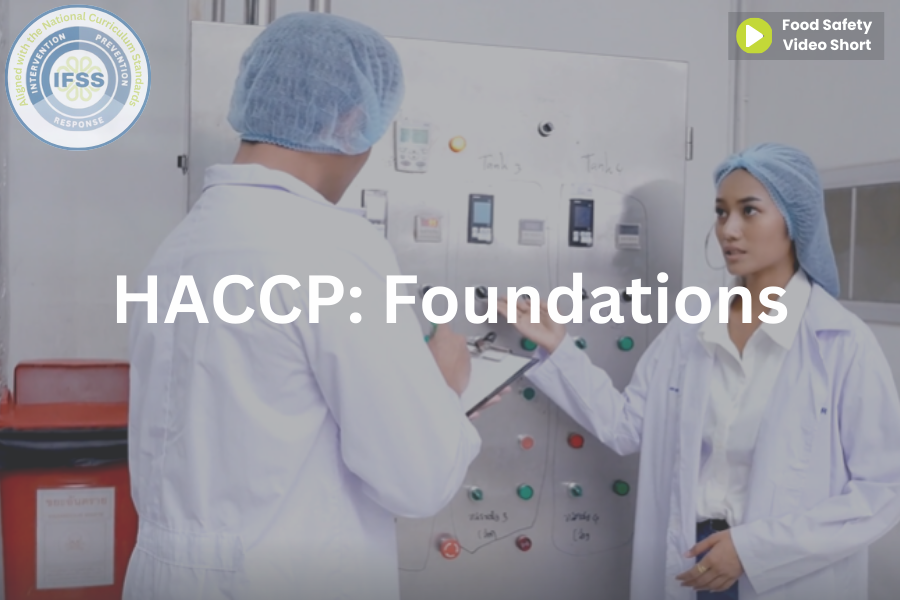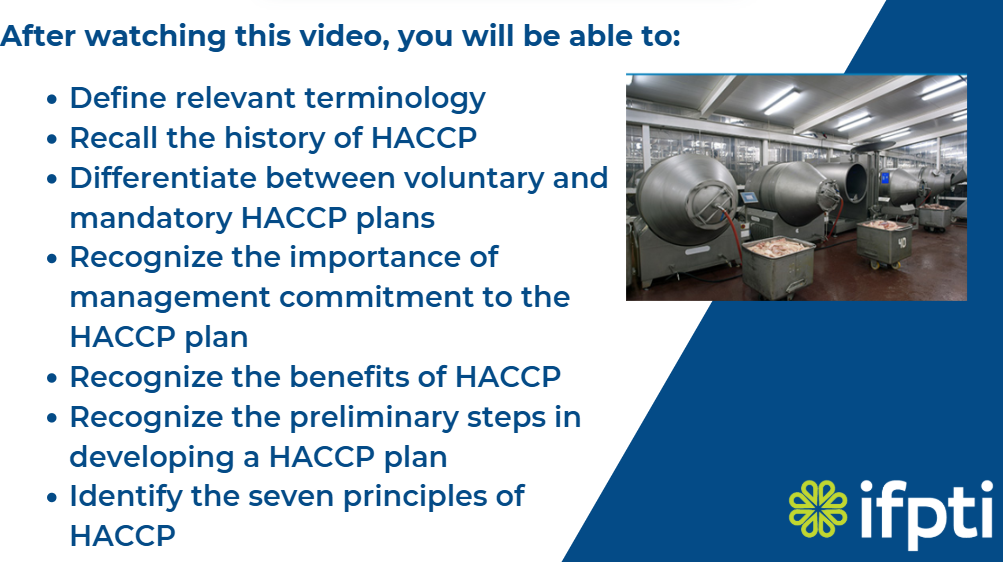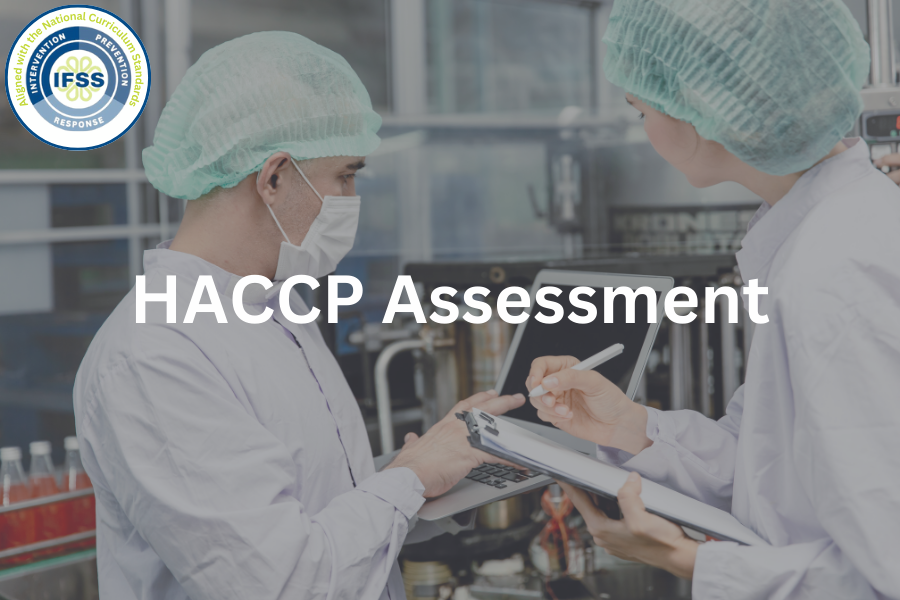HACCP
The IFSS Basic Level HACCP course provides introductory knowledge, skills, and abilities related to the hazard analysis and critical control points (HACCP) system.
Participants will be able the principles of HACCP.
Scope: Topics in this course include Foundations, Principles of HACCP, Prerequisite Programs, and Preliminary Steps in the Development of a HACCP Plan.
Course Objectives
Foundations
Define relevant terminology.
Recall the history of HACCP.
Differentiate between voluntary and mandatory HACCP plans.
Identify the seven principles of HACCP.
Recognize the preliminary steps in developing a HACCP plan.
Recognize the benefits of HACCP.
Recognize the importance of management commitment.
Principles of HACCP.
Identify the importance of prerequisite programs.
Identify examples of prerequisite programs.
Differentiate between a Sanitation Standard Operating Procedure (SSOP) and a Standard Data Management
Prerequisite Programs
Recognize the importance of a systematic approach in relation to the seven principles of HACCP.
Recognize the importance of a hazard analysis.
Define what is meant by “reasonably likely to occur.”
Differentiate between a critical control point and a critical limit.
Recognize the relationship between a hazard that is reasonably likely to occur and a control procedure.
Define the elements of a corrective action.
Preliminary Steps in the Development of a HACCP Plan
Recognize the importance of the HACCP team.
Recognize the importance of describing the food product and its distribution.
Recognize the importance of the intended use of the food product.
Recognize the importance of a detailed process flow diagram.
Recognize the importance of verifying the flow diagram.
Duration
Unit 1: Foundations – 25 minutes
Unit 2: Principles of HACCP – 15 minutes
Unit 3: Prerequisite Programs – 20 minutes
Unit 4: Preliminary Steps in the Development of a HACCP Plan – 25 minutes
Total: 2 hours
The IFSS Basic Level HACCP course provides introductory knowledge, skills, and abilities related to the hazard analysis and critical control points (HACCP) system.
Participants will be able the principles of HACCP.
Scope: Topics in this course include Foundations, Principles of HACCP, Prerequisite Programs, and Preliminary Steps in the Development of a HACCP Plan.
Course Objectives
Foundations
Define relevant terminology.
Recall the history of HACCP.
Differentiate between voluntary and mandatory HACCP plans.
Identify the seven principles of HACCP.
Recognize the preliminary steps in developing a HACCP plan.
Recognize the benefits of HACCP.
Recognize the importance of management commitment.
Principles of HACCP.
Identify the importance of prerequisite programs.
Identify examples of prerequisite programs.
Differentiate between a Sanitation Standard Operating Procedure (SSOP) and a Standard Data Management
Prerequisite Programs
Recognize the importance of a systematic approach in relation to the seven principles of HACCP.
Recognize the importance of a hazard analysis.
Define what is meant by “reasonably likely to occur.”
Differentiate between a critical control point and a critical limit.
Recognize the relationship between a hazard that is reasonably likely to occur and a control procedure.
Define the elements of a corrective action.
Preliminary Steps in the Development of a HACCP Plan
Recognize the importance of the HACCP team.
Recognize the importance of describing the food product and its distribution.
Recognize the importance of the intended use of the food product.
Recognize the importance of a detailed process flow diagram.
Recognize the importance of verifying the flow diagram.
Duration
Unit 1: Foundations – 25 minutes
Unit 2: Principles of HACCP – 15 minutes
Unit 3: Prerequisite Programs – 20 minutes
Unit 4: Preliminary Steps in the Development of a HACCP Plan – 25 minutes
Total: 2 hours
The IFSS Basic Level HACCP course provides introductory knowledge, skills, and abilities related to the hazard analysis and critical control points (HACCP) system.
Participants will be able the principles of HACCP.
Scope: Topics in this course include Foundations, Principles of HACCP, Prerequisite Programs, and Preliminary Steps in the Development of a HACCP Plan.
Course Objectives
Foundations
Define relevant terminology.
Recall the history of HACCP.
Differentiate between voluntary and mandatory HACCP plans.
Identify the seven principles of HACCP.
Recognize the preliminary steps in developing a HACCP plan.
Recognize the benefits of HACCP.
Recognize the importance of management commitment.
Principles of HACCP.
Identify the importance of prerequisite programs.
Identify examples of prerequisite programs.
Differentiate between a Sanitation Standard Operating Procedure (SSOP) and a Standard Data Management
Prerequisite Programs
Recognize the importance of a systematic approach in relation to the seven principles of HACCP.
Recognize the importance of a hazard analysis.
Define what is meant by “reasonably likely to occur.”
Differentiate between a critical control point and a critical limit.
Recognize the relationship between a hazard that is reasonably likely to occur and a control procedure.
Define the elements of a corrective action.
Preliminary Steps in the Development of a HACCP Plan
Recognize the importance of the HACCP team.
Recognize the importance of describing the food product and its distribution.
Recognize the importance of the intended use of the food product.
Recognize the importance of a detailed process flow diagram.
Recognize the importance of verifying the flow diagram.
Duration
Unit 1: Foundations – 25 minutes
Unit 2: Principles of HACCP – 15 minutes
Unit 3: Prerequisite Programs – 20 minutes
Unit 4: Preliminary Steps in the Development of a HACCP Plan – 25 minutes
Total: 2 hours
Two hours too long? The HACCP Certificate Program may be a better fit. This is a series of four short videos along with an certificate earning assessment that is alignment with National Curriculum Standards.


